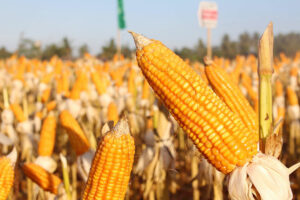Recent reports of a surge in respiratory illnesses in China, including human Metapneumovirus (hMPV), have created general anxiety among people, bringing back memories of Covid-19, the lockdown, and the uncertainties that came with it exactly five years ago.
hMPV is not a ‘mystery illness’, and India has been exposed to it for at least 20 years, say virologists.
What is hMPV? How long has it been around?
Discovered in 2001, hMPV is in the Pneumoviridae family along with respiratory syncytial virus (RSV), according to the United States Centers for Disease Control and Prevention (CDC).
In India, virologists say, hMPV has been around for at least 20 years and was documented in a published study (2009) by the head of virology at the All India Institute of Medical Sciences. The study cited data from 2005, meaning India has been exposed to this virus for at least 20 years.
In India, surveillance systems like ICMR and IDSP monitor trends in respiratory illnesses, including hMPV, alongside other pathogens such as influenza and RSV.
What is the impact of hMPV on human health? How does it compare with the SARS-CoV-2 virus in impacting health?
Unlike the novel SARS-CoV-2, which caused the Covid-19 pandemic, hMPV is no “mystery illness”, say virologists and health administrators across different countries, including India. It’s been over 20 years since its detection, so adults have been exposed to it and have developed some level of immunity.
Young children, though, are vulnerable since they may not have been exposed to the virus. Once they are exposed, their immunity builds too. The elderly and those with compromised immunity are also vulnerable and need to take more care to prevent infection.
SARS-CoV-2 had a massive impact on health. Being a novel virus, scientists had to develop diagnostic and other tools to try and stop the spread, or at least prevent severe illness, hospitalisation, and death.
- Also read: Health Ministry urges States to intensify surveillance for HMPV cases and launch awareness campaigns
What are the symptoms?
The symptoms of hMPV vary depending on the individual’s age, general health, and immune response.
For mild cases, symptoms include a runny nose, sore throat, cough, and fever, resembling a common cold. Moderate symptoms may include a persistent cough, wheezing, and fatigue.
In severe cases, especially in infants, older adults, and those with chronic illnesses or compromised immune systems, hMPV can lead to complications such as bronchitis, bronchiolitis, or pneumonia.
Severe Acute Respiratory Illness (SARI) requiring hospitalisation may also occur in some severe cases, according to health experts. However, severe conditions are mostly restricted to high-risk groups, such as infants and individuals with compromised immune systems.
Is hMPV highly contagious?
Like other respiratory illnesses, it spreads from an infected person through secretions from coughing, sneezing, close contact, shaking hands, and touching objects or surfaces before touching the eyes, nose, or mouth, says the CDC. Health administrators point to its seasonal nature, with circulation during the winter and spring months.
How long do the infections last?
Typically, the virus has a seven-day recovery period, depending on severity. Mild symptoms last for a week; severe cases can take longer to recover. However, long-term symptoms, such as a cough, may take longer to go away.
How is hMPV detected?
In India, surveillance programmes like the ICMR and the Integrated Disease Surveillance Programme (IDSP) regularly test for respiratory viruses, including hMPV, as part of their efforts to monitor and control respiratory illnesses.
Additionally, Reverse Transcription Polymerase Chain Reaction (RT-PCR) is commonly used as a diagnostic tool to detect hMPV RNA, while antigen detection tests are also employed.
What remedies or vaccines are available to combat this virus?
There is no vaccine to prevent hMPV, nor is there a specified antiviral treatment. It is primarily an upper respiratory tract illness, and only those with symptoms tend to get detected. With cold-like symptoms, it is usually mild and treated with decongestants, nose drops, steam inhalation, and rest.
If the infection seems to be worsening, it is advisable to consult a family doctor or general physician for guidance.
The CDC outlines the symptoms associated with hMPV as cough, fever, nasal congestion, and shortness of breath. Clinical symptoms of hMPV infection may progress to bronchitis or pneumonia, and they are similar to those caused by other viruses that lead to upper and lower respiratory infections.
The estimated incubation period is about a week, and the duration of illness varies depending on severity, similar to other respiratory infections caused by viruses.
Is the spread of hMPV in China and the rest of the world a concern?
Authorities in China and other parts of the world have explained that respiratory illnesses, including hMPV, spike in winter and spring. “hMPV, RSV, and influenza (flu) can circulate simultaneously during the respiratory virus season,” the CDC points out.
Additionally, the holiday season, when people gather in groups and travel, exacerbates the spread. Since this is an annual pattern, it may not be a major concern. However, there is a need to stay alert for any unusual patterns of infection or hospitalisation.
What precautions should the government and people take to combat this?
Covid-19 may have caught health administrators worldwide unprepared, but this is not the case with hMPV.
India has surveillance systems to monitor SARI (Severe Acute Respiratory Infections) and ILI (Influenza-like Illness), say experts. A spike in hospitalisations or cases can thus be detected early.
As with Covid-19, people should ensure basic hygiene, such as covering their mouth when coughing, washing hands regularly, and avoiding close contact with others if they have a cold or cough to prevent the spread of the virus. If symptoms persist or worsen, they should contact a doctor.








Leave a Comment